![]()
» Iran, Europe, and America
This editorial discussed the relationship between the United States and Europe on Iran. It believes that both sides share the same view toward Tehran but, sometimes, they differ. “After a long period of agreement on Iran, this harmony and cooperation are going through disagreement,” the editorial said.
The editorial lists two major points of disagreement between America and Europe concerning Tehran,
1. Under Trump’s leadership, the Unites States talks about revealing the nuclear deal and cornering the Iranian influence in the region, while the Europeans are willing to preserve the deal and relations with Tehran. The editorial added, “This is a real difference in the points of view that might be periodic. Trump never participated in the nuclear deal negotiations. Sometimes, he talks about sticking to the US commitments to the deal and sometimes about repealing or reviewing it, while Europe insists on preserving its biggest diplomatic achievements in this century.”
2. The second issue is the emergence of terrorism in the Middle East. The United States believes that Iran is the source of instability and center of terrorism and extremism in the region. On the other hand, Europe is exposed to terrorism more than the United States; however, the European adoption of this view (Iran is the source of terrorism) means self-deception and more involvement in terrorism and in the chaotic and insecure conditions of the region.
An Editorial in “Sharq” Newspaper on Sat. 29th, 2017
» The Internal Obstacles to Attracting Investments
This independent newspaper discussed the internal obstacles to attracting local and foreign investments. The top obstacle is the economic corruption and the governmental competition to the private sector. The editorial says, “There are obstacles to attracting local and foreign investments such as economic corruption, disrespect and constant change of laws, lack of security in the work environment, and competition between the public and private sectors where the government had to provide the infrastructure for private investments rather than compete them.”
The editorial also refers to two other obstacles; the instable currency value and lack of infrastructure. “Foreign investors want to know the currency value. Instable currency is one of the main obstacles to attracting investments. Moreover, when the investor makes feasibility for his project, he faces problems in infrastructure; no roads, airports, railroads, water, nor electricity,” the editorial said.
“There are other problems such as banking transactions because Iran does not have a connection to the Internet Banking Services. Furthermore, 80% of the Iranian governmental and semi-governmental economy and the public sector’s competition to the private sector have diminished the investor’s incentives. The government has to admit it is a bad merchant; on the contrary, it considers itself a competitor to the private sector, while they both have to work side by side in partnership.”
The editorial added, “After the nuclear deal, $11 billion and 8oo million were approved for investment; however, only $1.5 billion have been implemented. The Iranian investments abroad amount to $2 trillion but the Iranians are not willing to move their investments to Iran due to the lack of security.”
An Editorial in “Shurou’” Newspaper on Sat. 29th, 2017
» Are Most People Satisfied?
This editorial handled the results of the Iranian presidential elections. “23 million people voted for Rouhani, 16 million for the hardliner candidate Ebrahem Raisi, and 14 million abstained from voting,” the editorial said. “This means that the 23 million people are satisfied and do not have the right to criticize the performance of Rouhani’s government during the four years to come.” The editorial added, “The results were approved by the Guardian Council although it admitted some violations, which is important to investigate whether these violations influenced people’s opinions and results or not.”
The editorial listed some economic problems in Iran with Rouhani’s inauguration for a second term of presidency by saying, “Unemployment rate severed and reached the crisis stage, the government effectiveness indicators for the past four years reveal that all societal components complain about high unemployment, the labor market is facing recession, the production centers either stopped working or work less than their capacities, and there is noticeable carelessness about the internal production process that creates jobs and encourages investments.”
The editorial also discussed Rouhani government’s points of weakness, especially the international sanctions imposed on Iran even after signing the nuclear deal; however, Rouhani received 23 million votes and won the elections, which reflects that most people are satisfied with the economic conditions in the country. The editorial added, “The 23 million people did not reject the skyrocketing salaries, the embezzlement of billions from the teachers’ funds, and importing foreign goods that closed down many factories in the country because these people have the money to buy these goods; so, do these 23 million people have the right to object Rouhani’s policies today?”
The editorial asserted that only those did not vote for Rouhani and those abstained from voting have the right to complain about his performance and reject his policies in the future. Nevertheless, it believed that not all who voted for Rouhani are satisfied with the current situation in the country.
An Editorial in “Siasat Rous” Newspaper on Mon. 27th, 2017
» The Election Violations, House Arrest, and Hardliners Contradiction
This editorial criticized the contradictory state controlling the hardliner current. They are questioning the results of the presidential elections and use of the term “violations” rather than “electoral fraud” in order not to remind people with the vote rigging in favor of Ahmadinejad in 2009. They also use the term “preventive custody” when they talk about Issa Qasem instead of the term “house arrest” that would remind people with the Green Movement leaders. The editorial also said, “Hardliners are mixed up in grotesque contradiction. They believe there are violations in the presidential elections on one hand but do not want to use the term ‘fraud’ on the other. When Tehran Jum’a Imam, Mouahissi Karmani says that 2 million of Rouhani’s votes have to be deducted and 3 million have to be added to Raisi’s votes, this exceeds the level of violations.”
The editorial sees that hardliners avoid using the term fraud because if they use it, they admit Ahmadinejad’s opponents’ claims about rigging the elections in 2009. It added, “Ahmadinejad’s supporters claim presidential fraud in favor of Rouhani the elections of 2009 were free of any violations as if the elections they lose are rigged, while those they win are credible.”
The editorial believes that this contradiction was repeated in the case of the Iranian-supported Issa Qasem that was put under house arrest in Bahrain a few days ago. “The hardliners-supported media use the term preventive custody instead of house arrest in order not to remind people with the Green Movement leaders, Mahdi Karroubi and Mir Hussein Mousavi and his wife Zahra Rahnavard who have been under house arrest since the elections of 2009,” the editorial said. “The case is not the veracity of house arrest or not, the case is the grotesque mix up of hardliners who sometimes confirm some claims they rejected before.”
An Editorial in “Mardom Salary” Newspaper on Mon. 27th, 2017
![]()
♦ A spy related to Rouhani’s cultural advisor arrested

Gholam Hossein Mohseni-Ejei, Iran’s judiciary spokesperson, has confirmed the arrest of an individual affiliated with the office of President Rouhani’s cultural advisor. In reply to a question by Mehr News reporter about the arrest of an individual related to Hesamodin Ashena, President Rouhani’s cultural advisor, by Intelligence Ministry on a charge of espionage, Ejei said: “An individual with such charges and details have been arrested.” Ejei added that they are still in the process of gathering more information.
Mehr News
♦ Supreme National Security Council to decide on ‘house arrest’
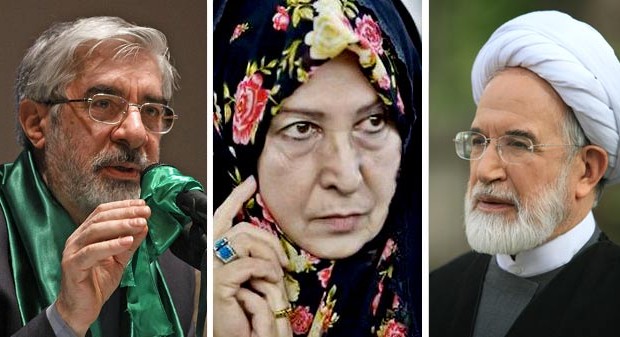
Following the recent controversy over the house arrest of leaders of Iran’s Green Movement, Mir Hossein Mousavi, Zahra Rahnavard and Mehdi Karroubi, the judiciary spokesperson said only the Supreme National Security Council has the authority to investigate the case. “No one else can interfere”, said Gholam Hossein Mohseni-Ejei, “nor can anyone try any populist measures [in this regard].”
On May 29, Sadegh Larijani, Iran’s Judiciary Chief, warned against those who “raise the issue” [of house arrest], saying the judiciary would “firmly put a stop to it.” Larijani’s words came after Hassan Rouhani’s promises about ending the house arrest of the three leaders in his recent presidential campaign.
ISNA
♦ Shell, Total invited to Iran oil fields
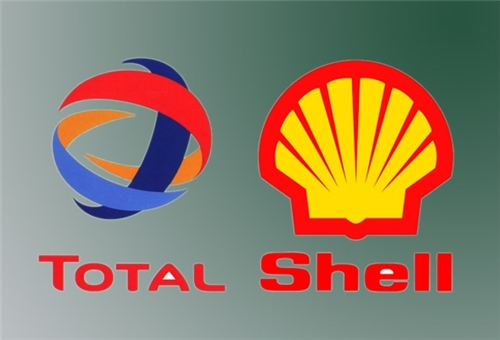
Iran has sent invitations to a number of major international oil companies to participate in its oil tender this week. Royal Dutch Shell Plc, Total S.A., China National Petroleum Corporation and Sinopec Corp are among the companies in Iran’s invitation list which is reported to be limited.
Iran Daily
♦ Iran’s non-oil gross domestic product growth at 6.3%
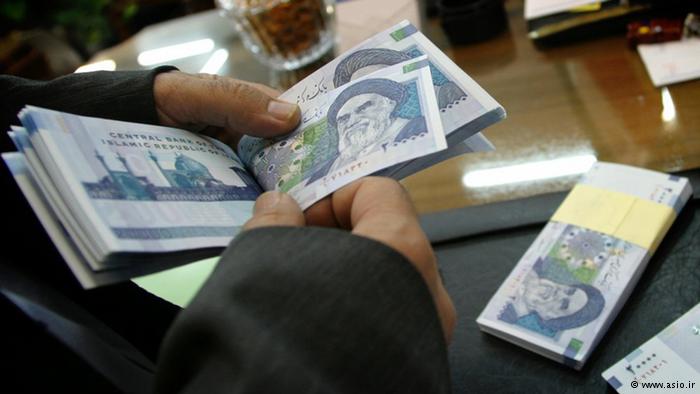
The Statistical Center of Iran (SCI) reports the country’s non-oil GDP has grown by 6.3 percent in the past Iranian year. The report also says GDP growth, including the oil sector, reached 8.3 percent in the same period. Non-oil GDP was at 641.37 trillion rials, and including oil, it reached 673.09 trillion rials during the past year.
Iran Daily
♦ Rise in number of young women with HIV in Iran
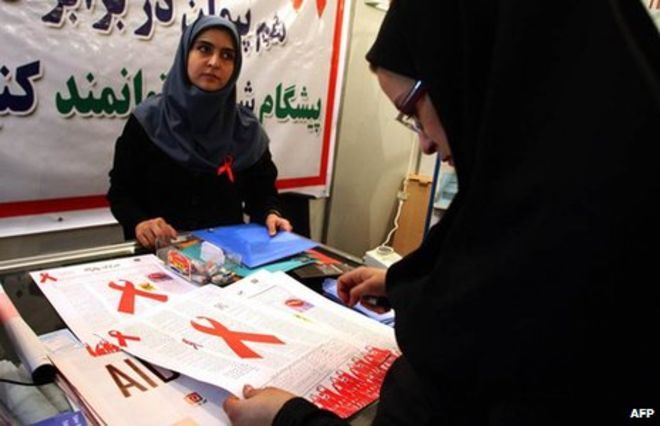
Shirin Ahmadnia, a member of the board of directors of Iran Sociological Association said that the rate of HIV infection is rapidly on the rise among women as compared to men, while young women are more at risk in this regard. Ahmadnia emphasized that what is worrying about HIV in Iran is the rapid growth of HIV-infection through unprotected sexual relationships, as compared with other ways of transferring the HIV-virus.
Iran Health Ministry has identified 30 thousand people with HIV virus. Meanwhile, according to World Health Organization’s formula, more than 70 thousand people with HIV-infection do not know about their own disease, thus transferring it to others unintentionally.
Arman Emrouz
♦ Independent fraction to support Larijani as speaker again
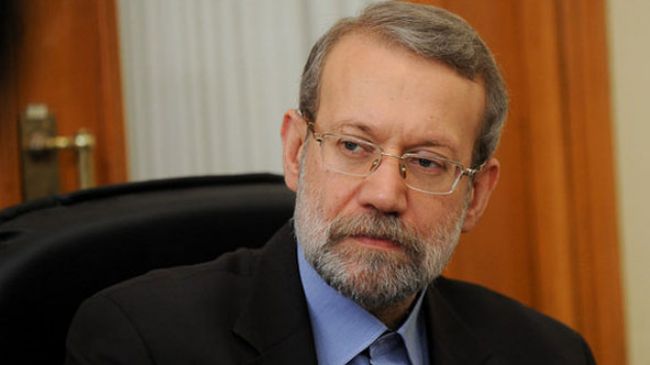
The spokesperson for the parliament’s independent fraction has announced its endorsement for Ali Larijani to remain as the parliament speaker. Mehrdad Baouj-Lahouti added that his fraction also believes that lawmakers Massoud Pezeshkian and Ali Motahari have had good performance and demands that they keep their positions at the parliament’s presiding board.
Tasnim News
♦ Chinese banks block Iran’s money
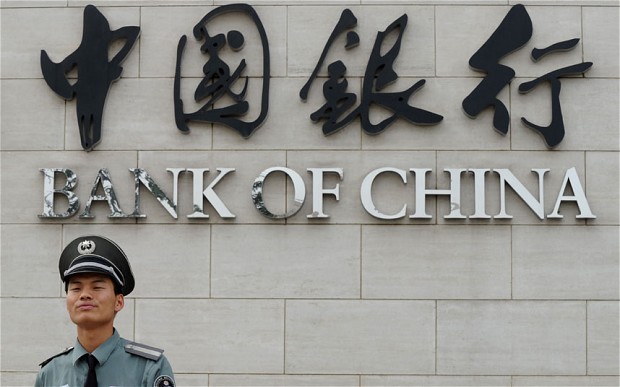
The President of Iran’s Oil Products Export Union, Hamid Hosseini, has said Iranian companies’ accounts have been blocked in Chinese banks. “The Chinese banking system has become sensitive towards the source of those bank accounts”, Hosseini added. “This has nothing to do with the U.S. sanctions,” said Hosseini. He also said Iran had the same problem in the United Arab Emirates two years ago: Around 4 to 5 thousand bank accounts of the Iranian, Afghan, Arab and Omani economy activists were closed due to the same reason.
Andalou News Agency
♦ Boroujerdi: Washington will regret any military decisions against Iran
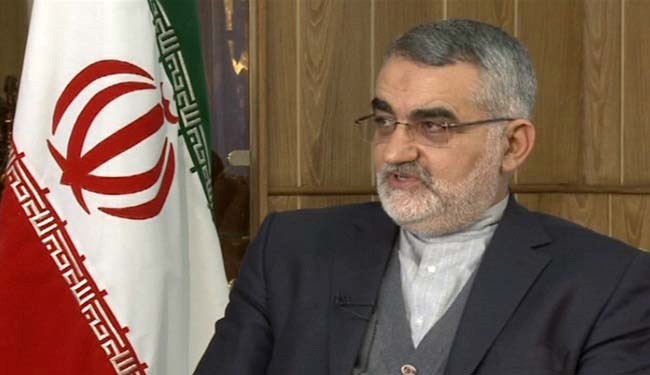
Head of Parliament’s National Security and Foreign Policy Alaeddin Boroujerdi said that any military decisions against Iran will draw a response that will make Washington regretful. He condemned U.S. military presence in the Middle East, saying that even though the U.S. has lost about 5000 people in Iraq, they still insist on their presence in the region.
Head of Parliament’s National Security and Foreign Policy said that despite Americans’ claim about fighting terrorism; they actually create unrest and increase violence. He continued that presence of American military forces in the conflict zones will increase the possibility of casualties and it has nothing to do with Iran.
Khane Mellat
♦ Iranians’ bank accounts blocked in Turkey’s Halk Bank
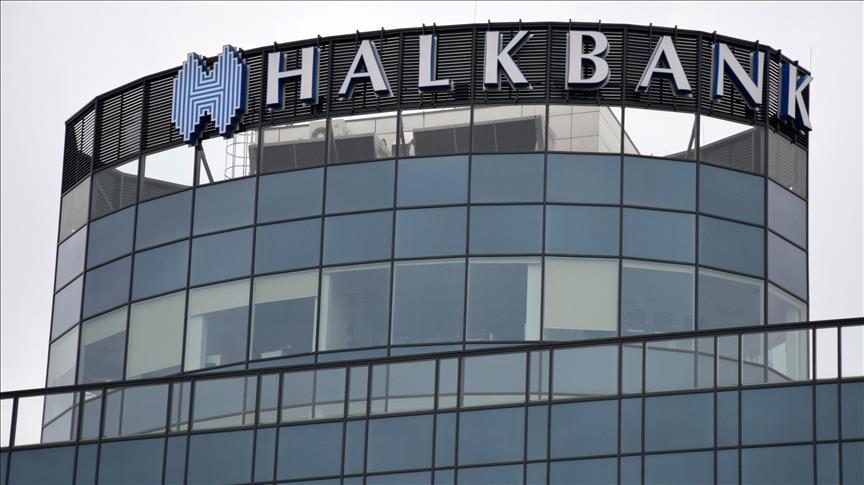
A businessman told Nasim online that his company had recently opened a bank account in Turkey’s Halk Bank, but was later informed that due to the U.S. pressure on the Turkish government, Iranians are not allowed to open accounts in this bank, as a result of which their account has been blocked. He added that apparently, policies of Trump’s administration in their trip to the Middle East is the main reason, and the Turkish government has decided to issue a directive to block Iranian accounts in this country’s banks.
The businessman continued that Iran’s nuclear deal with P5+1 has had no positive impacts for those who are active in the economic sector, and more foreign restrictions appear day by day.
Nasim online
♦ Iran exports free gas to Turkey
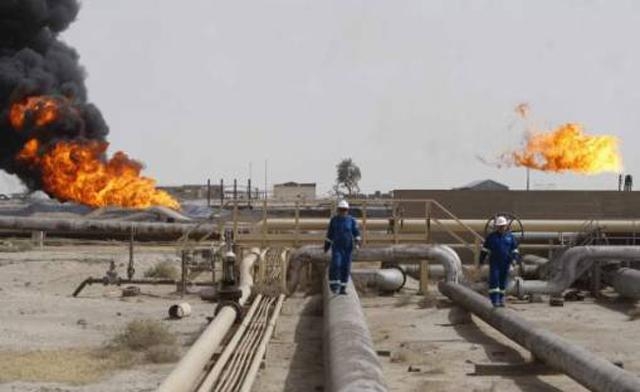
Iran Oil Minister Bijan Zanganeh says following the decision by International Court of Arbitration, Iran is not currently receiving any money for its gas export to Turkey. Zanganeh added the court ruled a 13-percent discount on the prices of gas delivered from Iran to Turkey, which was implemented 9 months after Turkey’s demand. Now we owe Turkey the money we received for the gas delivery at the time, said Zanganeh. That is why Iran is exporting gas to Turkey for free, he added, this is not a fine.
In 2012, Turkey sued Iran in the International Court of Arbitration for overpricing on gas purchases between 2011 and 2015. The court ruled against Iran in 2016.
Sputnik News
♦ 2 border guards killed in clash with PJAK

Two members of Urmia border regiment forces in northwestern Iran were killed when fighting with PJAK, an offshoot of Turkey’s Kurdistan Workers’ Party (PKK). Also, seven others were wounded in the clashes which burst out when guards were changing posts on the evening of May 27, according to Mehr News Agency.
Jam-e Jam online
♦ Iran judiciary to investigate Rouhani’s Ph.D. dissertation
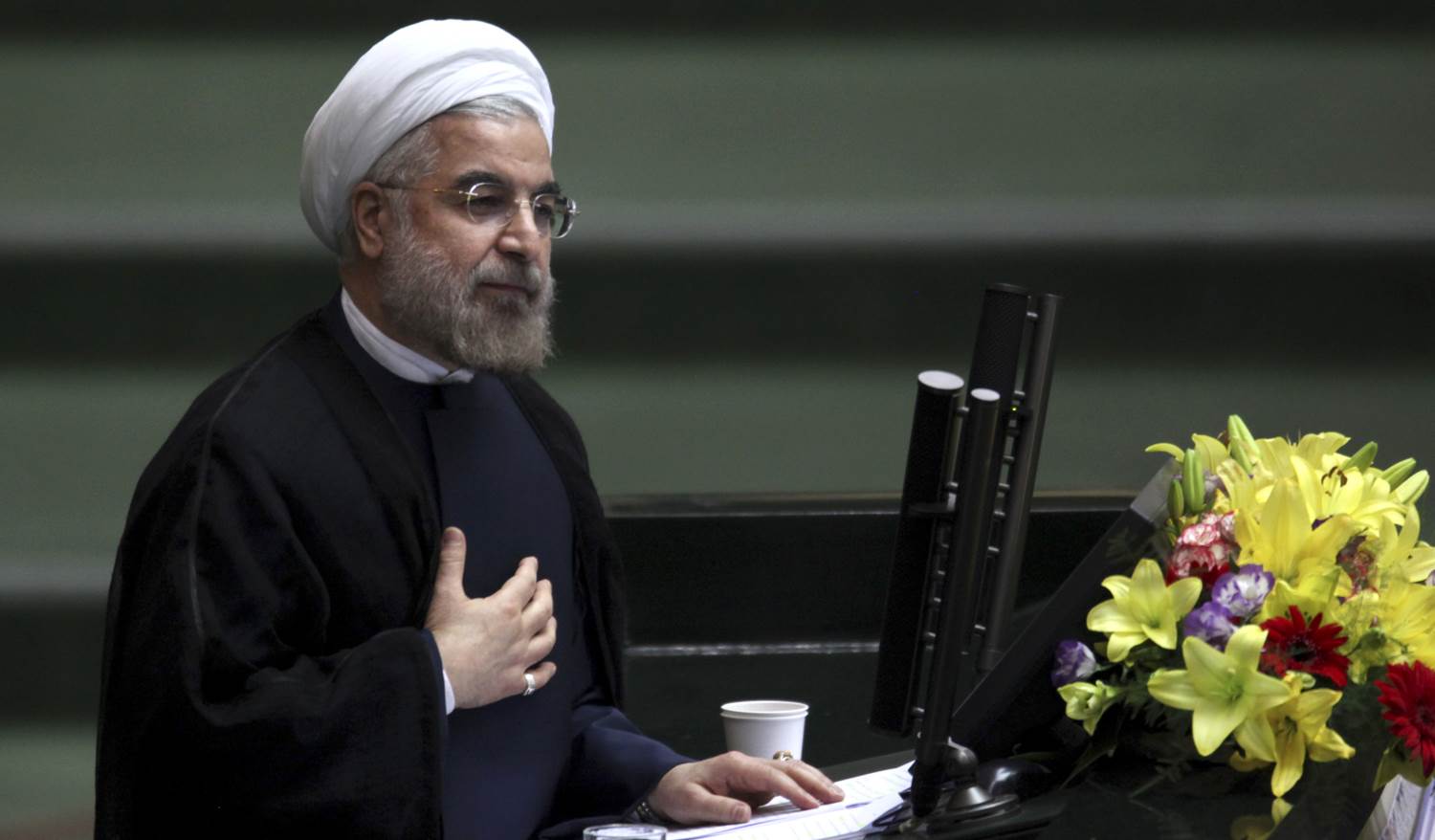
Mohammad Qomi, a member of the Parliamentary Commission on Education and Research says the committee, which was formed to investigate President Hassan Rouhani’s Ph.D. dissertation is not, qualified enough. “If there is any violation in the president’s Ph.D. dissertation, the judiciary should investigate it,” added Qomi in an interview with Tasnim News.
Ali-Akbar Kalantari, who represents Fars province in Iran’s Assembly of Experts, had previously accused Hassan Rouhani of plagiarizing from his book, according to Tasnim News. “A major part of chapter 4 in his [Rouhani] dissertation entitled “second decree” was copied from my book,” said Kalantari.
Vatan-e Emrouz
♦ Nobakht: Iranian government believes in protecting the Internet
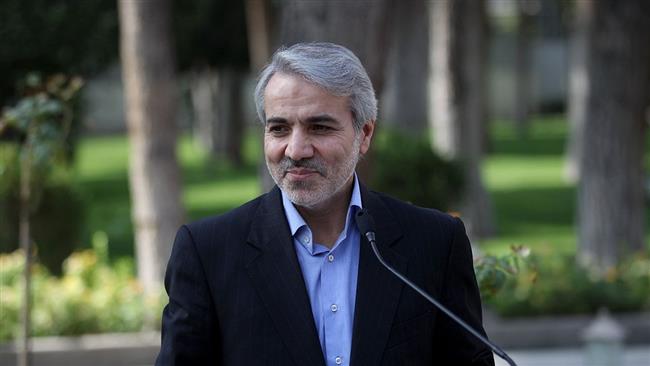
Government spokesperson Mohammad Bagher Nobakht emphasized that the government believes in protecting the Internet more than before, saying that during the election, there were “deficiencies in information flow in some media”, which made the government use the Internet for informing the people. Pointing out to the role of Internet in people’s participation in the election, Nobakht said that the Internet provided the opportunity for sufficient flow of information, which was not possible through other national media, which is why the government believes in protecting it more than before.
During the presidential election campaign, Hassan Rouhani had accused state-run IRIB of not being impartial, and being controlled by a certain “political group”.
Iran newspaper
♦ Changes in diplomatic structures, says lawmaker
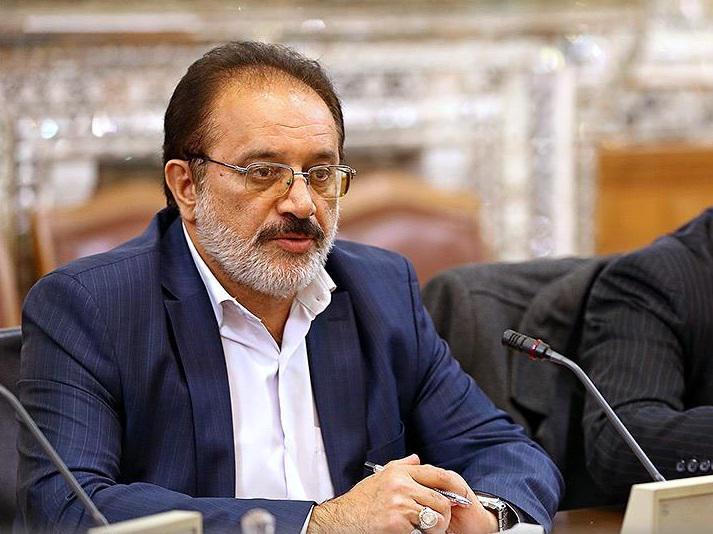
Deputy head of Parliament’s National Security and Foreign Policy Commission announced some changes in the diplomatic structure of the country are on the way. Abolfazl Hassanbeigi pointed out to this commission’s studies to realize resistance economy in the country, adding, “some measures must be taken inside and outside the country to fulfill the resistance economy”.
Hassanbeigi asserted that in meetings between members of National Security Commission and foreign ministry officials, they have reached the conclusion that Iran’s diplomatic structure needs some changes in accordance with Islamic Republic’s ideals. He underlined that the old structure of foreign ministry does not meet the country’s needs.
Arman Emrouz
♦ Mohsen Hashemi denies speculations on electing Tehran’s mayor
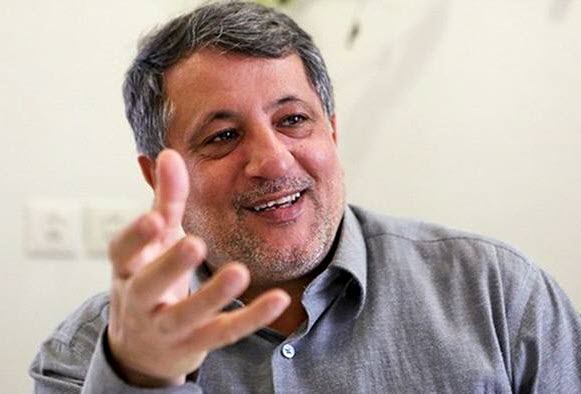
Following the publication of the news as to the election of Tehran mayor by anonymous social media and its extensive republishing on the Internet, Mohsen Hashemi, son of late Hashemi Rafsanjani, called such news groundless, saying that there are still two months to the official formation of Tehran’s City Council. He emphasized that there has been no discussion in this regard so far, saying that publication of such news would only weaken the unity of the new council.
Some media had claimed that 17 out of 21 members of Tehran’s City Council have already agreed with Mohsen Hashemi becoming the mayor of Tehran.
Etemad
♦ IRGC commander killed in Mosul operations
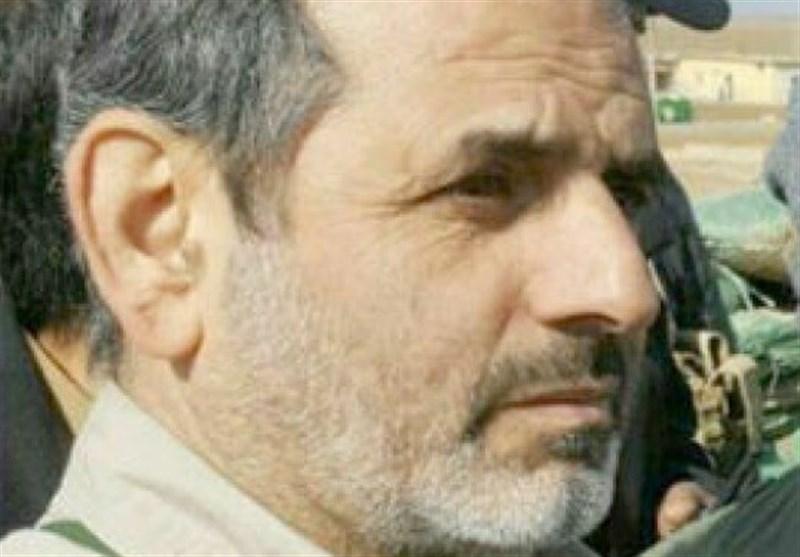
A commander of the Revolutionary Guards Corps (IRGC) was killed in an operation in west Mosul. Brigadier-General Shaban Nasiri was killed in operations by Iran-backed, Iraqi paramilitary forces against ISIL in Baaj—an area still witnessing the presence of ISIL forces. Haj Shaban Nasiri was present not only in the 8-year war between Iran and Iraq but also had a long record of fighting in Syrian fronts.
Mashregh News
♦ Negotiations to expand cooperation between Iran and Czech Republic
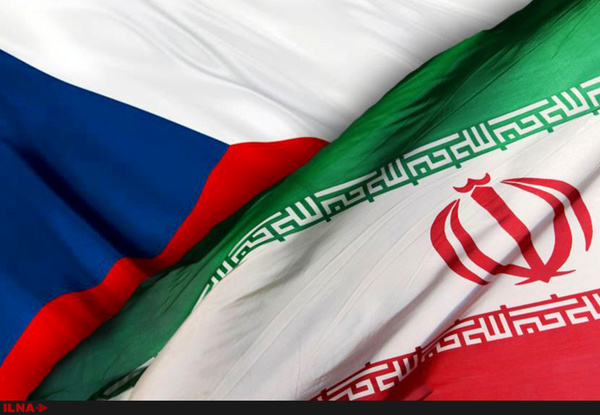
At a meeting in Prague between the Iranian charge d’affaires and Governor of Liberec Region, an agreement was reached over the expansion of scientific, technological and industrial cooperation between this Czech city and Iran. Ali Akbar Joukar, Iranian charge d’affaires, met with Martin Puta, Governor of Liberec, to negotiate mutual cooperation. Joukar said that Liberec Region, due to its scientific and technological infrastructures, can be one of Iran’s cooperative partners.
ISNA
♦ Iran’s condition to resume importing gas from Turkmenistan
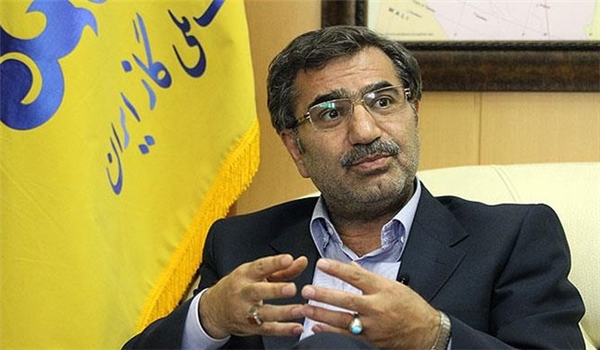
Hamid Reza Araghi, Iran’s Deputy Petroleum Minister and Managing Director of National Gas Company, announced if Turkmenistan reduces the gas price in future, Iran will buy gas from this country. Otherwise, “if Ashgabat disagrees with our demands, we will file a complaint against this country in International Court of Arbitration for cutting gas on us,” he said. Araghi added, “if they are ready to negotiate over the issues that we have, we will not take the case to International Court of Arbitration.”
Last January, Turkman Gas company violated its contract and suddenly stopped exporting gas to Iran. Turkmenistan has exported 5 million cubic meters of gas to Iran per day.
IRNA
♦ Iran Armed Forces will not tolerate any threats, says military official
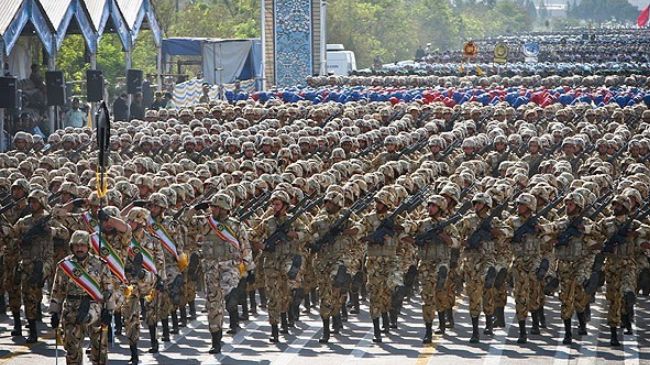
Commander of Khatam ol-Anbia Air Defense base said Iranian Armed Forces will show zero tolerance against those who threaten his country. Brigadier-General Farzad Esmaeeli urged that if enemies even think of approaching Iran’s border today, they will “receive an appropriate response.” He called Israel a constant threat against Iran, adding that the Supreme Leader Khamenei says the “final word” for armed forces in this regard.
Pointing out to 400 air defense locations during Iran-Iraq war, Esmaeeli said currently the number has increased to 3,700 throughout the country. He also criticized being passive on social media, saying that “social media are trenches for us and we need to be active there.”
ISNA
♦ Salehi explains why Kazakhstan opposes sending yellowcake to Iran
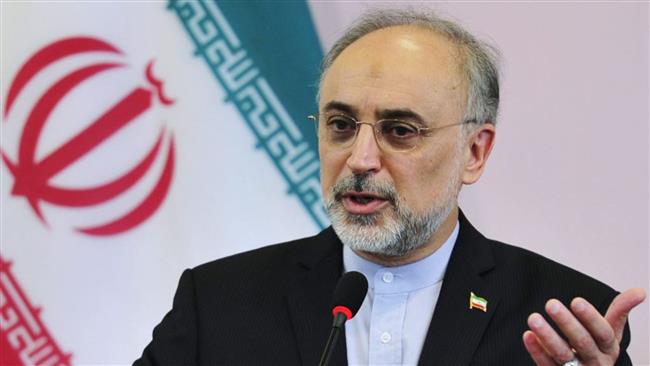
Head of Atomic Energy Organization of Iran Ali Akbar Salehi denied that Kazakhstan’s disagreement with transferring uranium to Iran had anything to do with changes in the U.S. policies, saying that the U.S. had previously announced its agreement with this contract. Ali Akbar Salehi added Iran had a contract with Kazakhstan and P5+1 in the framework of its regulations, but Britain created some problems in the last minute, despite its initial agreement.
Recently it was reported that “KazAtomProm” (Kazakhstan Atomic Company) disagreed with transferring 950 kilograms of uranium to Iran due to changes in U.S. policies. As for the relation of this issue to Trump’s administration, Salehi emphasized that the U.S. has announced its agreement with the contract.
Vatan-e-Emrooz
♦ Yasser Hashemi ousted from chief of Azad University’s Board of Trustees

Yasser Hashemi, son of late Hashemi Rafsanjani, who was chief of Azad University’s Board of Trustees was removed from his position. After recent removal of Hamid Mirzadeh from his position as the president of Azad University, Yasser Hashemi had expressed his concerns in this regard, calling it against the manner of his father Hashemi Rafsanjani. He had also warned about the future of Azad University and the policy of “removing Hashemi” from this university.
ILNA
♦ Raisi: Election violations were engineered
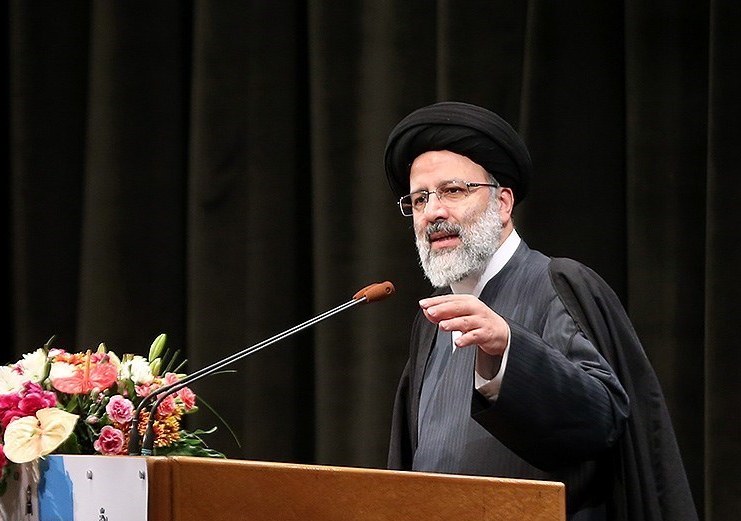
Ebrahim Raisi, the main opponent of Hassan Rouhani in the recent presidential election, called the election violations as “engineered” while urging that if these violations are not addressed, people’s trust will be damaged. He added that in areas where he had more votes than Hassan Rouhani, “people had to wait long hours, and couldn’t eventually vote”.
In a speech in Mashhad, Raisi had called the incidents in presidential election “unprecedented”, saying that there were many engineered violations in this election. He had also claimed, “all ministries, governors’ offices, etc. had become election headquarters for the government’s candidate.”
Radio Farda
♦ Islamic Coalition Party: Zarif must be accountable to people
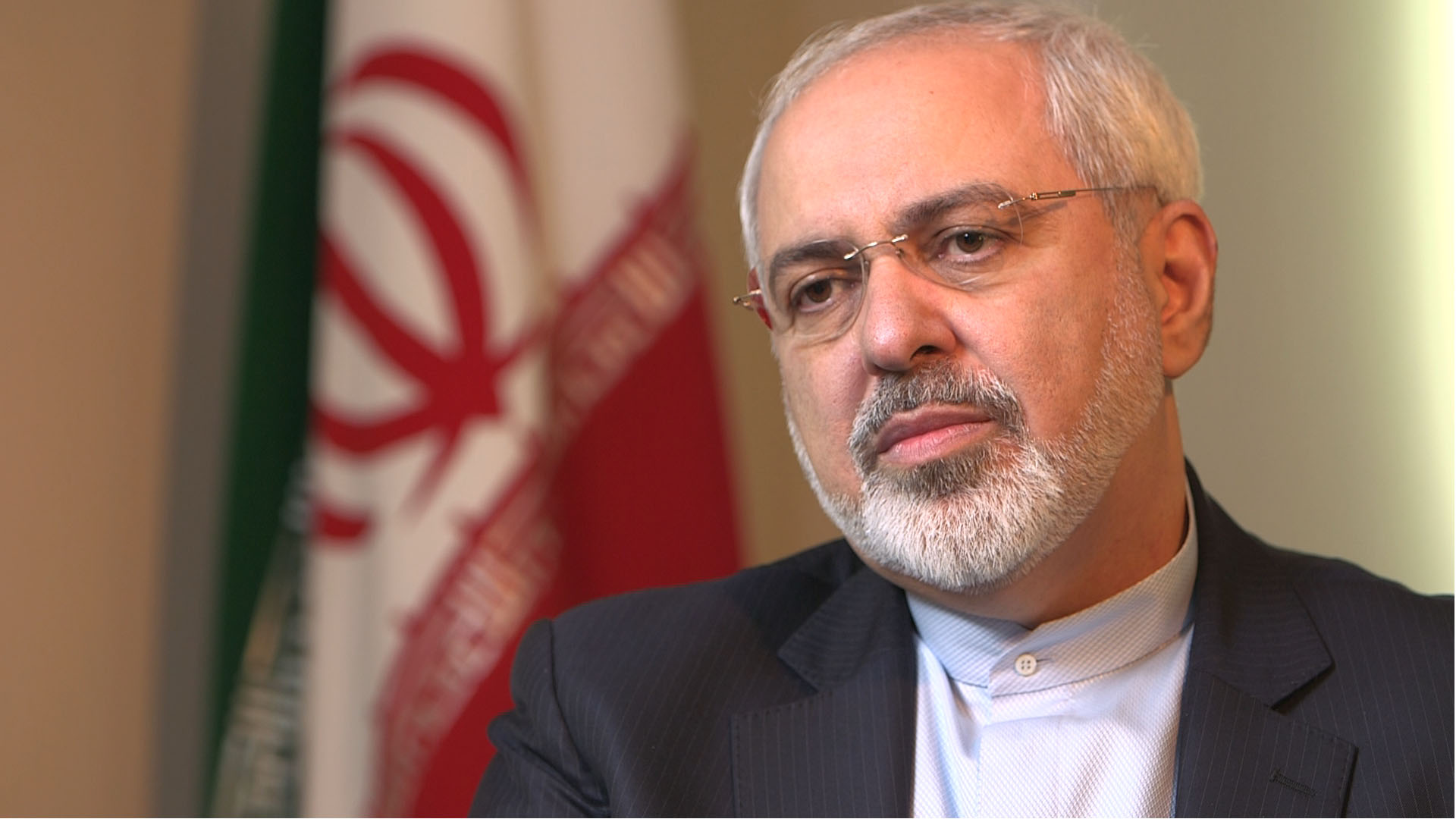
Chairperson of Islamic Coalition Party (motalefeh) pointed out to new ratification of the U.S. Senate’s foreign relations committee as to putting new sanctions on Iran, saying that Iranian government must be accountable for these new sanctions. Mohammadnabi Habibi added that Iran’s foreign minister Mohammad Javad Zarif must be accountable to people about Iran’s relationships with the west after JCPOA, telling them how the government is going to manage the new clear deal in its second term.
Habibi added that Trump’s recent trip to Saudi Arabia brought back the “shadow of war” to the region, promoting “Iran phobia” as Washington’s latest stance. Meanwhile, U.S. Senate created a new wave of sanctions against Iran.
Jahan Sanat
♦ Political analyst expects more sanctions against Revolutionary Guards
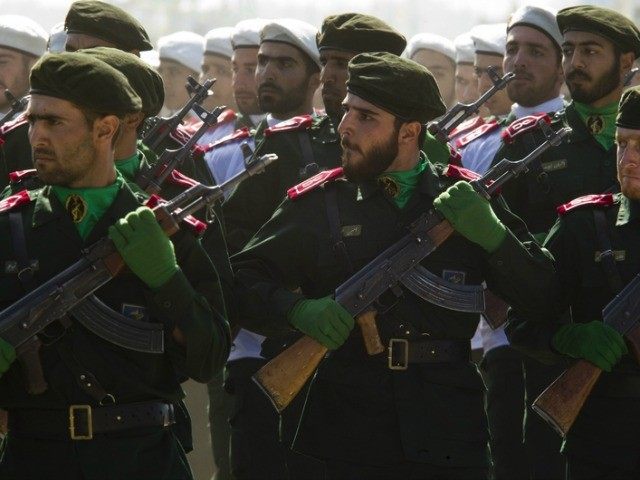
Amir Ali Abulfath, the political expert in foreign policies, said regarding the ratification of the U.S. Senate bill to increase sanctions against Iran that the bill will certainly include new sanctions, but these sanctions will not be for the nuclear issues. He added that it has been predicted that probably these sanctions will be against Iran’s Revolutionary Guards Corps (IRGC) and companies that have contracts with this organization.
Amir Ali Abulfath said even though previously there were disagreements about nuclear sanctions between democrat and republican representatives, now congressional representatives from both parties do not significantly disagree with each other over Iran’s role in supporting terrorism and its measures to destabilize the Middle East.
Aftab Yazd
♦ Iranian border police: Turkey responsible for death of Iranian guards
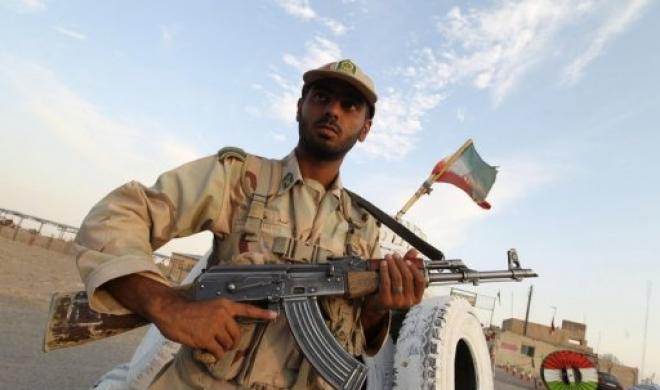
Commander of Iran’s border police Ghassem Rezaee announced Turkey responsible for armed attacks and deaths of Iranian border guards. Ghassem Rezaee pointed to deaths of 2 border guards and injury of 4, adding that in the region where Iran’s West Azerbaijan province has a border with Turkey, there have been activities of “terrorist groups with different names”, and Turkey must be accountable for that.
Radio Farda
